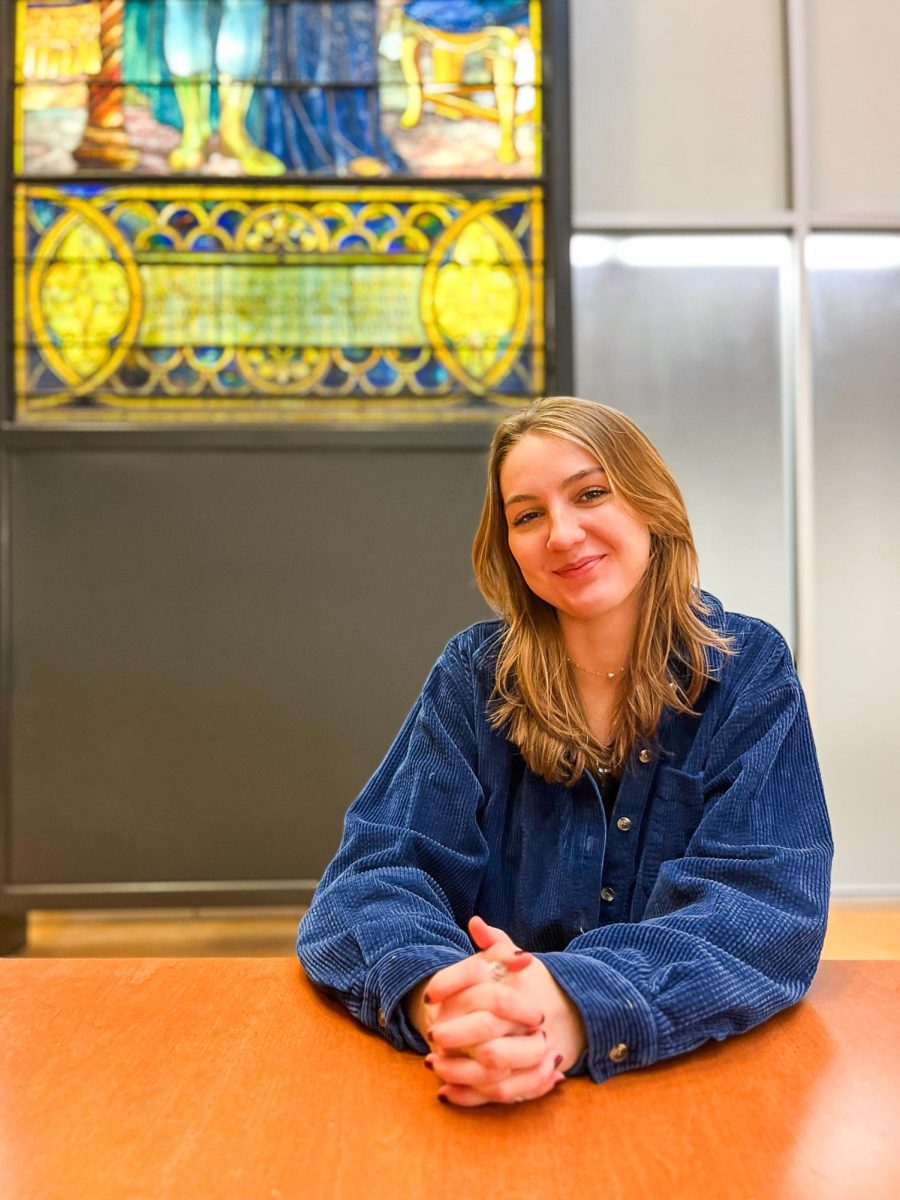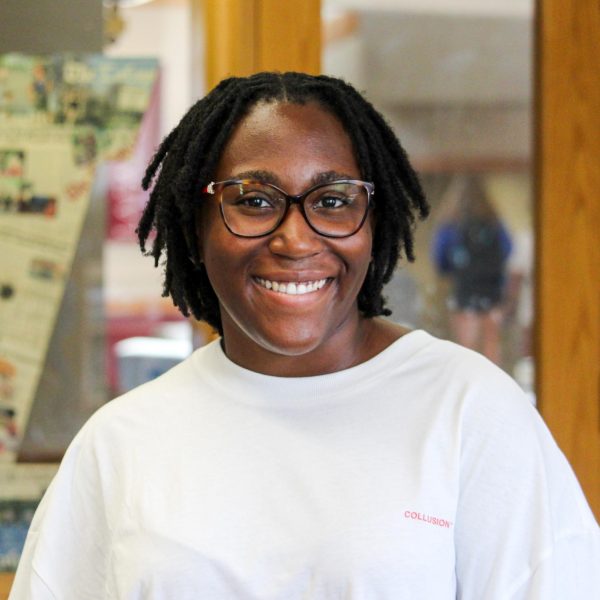Anna Marinovich ’24 will leave Lafayette as a published author.
In co-authorship with sociology professor David Shulman and Willa Goodman ’23, Marinovich’s learning resource “An Exercise to Introduce Virtual Reality to Sociology Undergraduates” was accepted for publication in the American Sociological Association.
The paper is an exploration of the technological affordances of virtual reality based on Shulman’s and students’ experiences testing the capabilities of the technology in the classroom.
“What we want to do is think about different ways to plan, expose people to learning about using that technology and having some experiences with that,” Shulman said.
Marinovich first connected with Shulman and Goodman after deciding to switch her major from government and law to anthropology and sociology.
Marinovich, a Brooklyn native, had an early interest in political activism ranging from lobbying to advocating for a variety of rights and important social movements.
“When I came to school, I was trying to find a major that felt like it was kind of a vessel of class that could also be used as a tool outside and beyond graduation to still practice that type of activism,” Marinovich said.
Originally, she found her government and law major to be a perfect way to realize that goal but eventually pivoted towards anthropology and sociology.
“I always loved sociology, I think it’s the most underrated major,” Marinovich said. “I did an externship with a lawyer through Lafayette at the district attorney’s office and it was really interesting, but after just seeing what I saw in the sociology classes because of the systemic kind of issues and seeing that in person … I just didn’t know if I could see myself taking out loans to then reinforce that system. I think for me that was a wake-up.”
While getting accepted for publication in the journal was a long process requiring three stages of revision, Marinovich got a lot out of the journey, from learning how to administer an experiment to gaining the support she needed for a co-authorship as well as guidance for her senior honors thesis.
“Throughout that research process, I also did research for [Shulman] on a sociological activism database, grant funding work and immersion in the entertainment industry … and I did that research for a year beyond the virtual reality [study] … So now he’s turned around and he’s supporting my research interests with the thesis because he’s my advisor,” Marinovich said.
Marinovich feels supported by Shulman in a myriad of ways throughout her academic career.
“Professor Shulman is the best,” Marinovich said. “He’s my advisor and my thesis advisor. I took a class with him in my sophomore fall and I reached out and just asked him if he would be interested in or if he had any research opportunities and he did.”
When it came to working with Marinovich for her thesis and research, Shulman had only positive things to say.
“I think she’s super smart, hardworking … she can do all of this stuff, and there is no going back and fixing,” Shulman said. “She thought of good points to make, she thought about what might be good for assessing, so she was a part of the quality of that work.”
In addition to this research with Shulman, Marinovich is doing archival research for her honors thesis as well as applying to a variety of research positions and master’s programs for post-graduation work.
“I applied to Fulbright … to go to a master’s [program] in social science in Madrid so that’s a goal,” Marinovich said. “I’m also looking at research positions beyond school, so a lot of that type of carrying the sociology legacy.”
Isabella Gaglione ’25 contributed reporting.























































































































